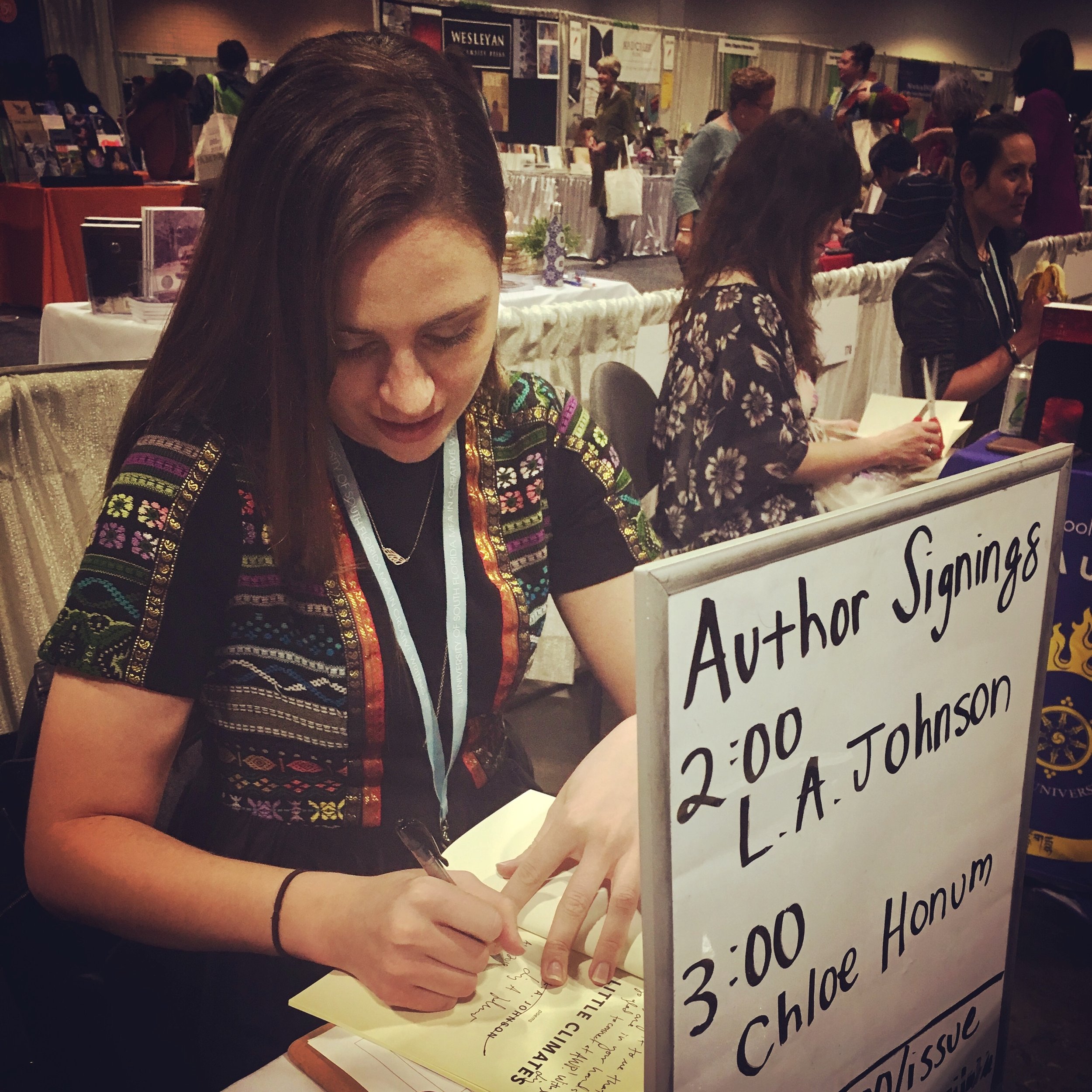INTERVIEWS
Interview on Napkin Poetry Review
Interview on The Rumpus
Interview on Speaking of Marvels
Interview on The Massachusetts Review
PHOTOS IN ACTION
FEATURES AND REVIEWS
Under-30 Scholarship notice from Mendocino Writers Conference
Little Climates reviewed on Best American Poetry Blog
Little Climates reviewed & featured on At Length
Little Climates reviewed on EcoTheo Collective
Little Climates reviewed on Sabotage Reviews
PRAISE
“Each generation of poets rewrites the function of poetry in society…I once wrote: “poetry, like all imaginative creations, divines the human enterprise. This is poetry's social function.” I still believe that, but also know that poems which attempt to re-envision a better world, one that is kinder, more humane, more just, those poems are reaching for the greatest possibility to impact. [L. A. Johnson’s] poem articulates a resolute wish that many poets share, to reorder our consciousness toward beauty.”
- Major Jackson, in The Slowdown
“L. A. Johnson wowed me with her poems at the 2021 Indiana University Writers' Conference, and she is still wowing me. In "While I Wait for a Late Train at Union Station," I admire how she tests how elastic a stanza, each a single sentence, can be: what it can hold, and how we unpack it. I admire the masterful enjambments, which help us parse the syntax, providing both suspense and sly wit: "approximately / forever" is perhaps my favorite break. I admire the music in the word choices—the way "little spills" chimes against "hillside," and the way the assonance, consonance, and alliteration ("chaparral tangled," "the perfume of pears") feel organic to the poem... I've become a fan of Johnson's work, and I'm always excited to see what she does next.”
- Maggie Smith, in Plume
“What is sight, what is smell, how do they lead us into life, into what we believe and become? In “House Full of Someones” we are strangers, we are putting our eyes to the window, we are with the speaker of the poem, we are curious, what world is this? We are caught in between the dead and the living, we are in the language. I am in awe of how the poem progresses, of what it seeks to achieve. At the end, the poem knows that knowledge is gotten through waiting, through patience, and as we wait with it, I ask myself, what have I learnt? Yes, it is too late for the dead to go back, to be alive, but what possibility lies in death? What becomes of us, of the dead in this world? What have we smelled, what have we seen, what do we wait for? There are poems that teach us about the fullness of our humanity, that open spaces and show us the world that exists just beyond what we have been used to. When I read [L. A. Johnson's poems] I was ushered into a world where grace is alive and grief is pain, but also the gateway to hope. In the world of these poems even joy must be disguised before it is achieved and at the end of pain there is rebirth, a human life for a lemon. At first this looks impossible, but the language of these poems is alive, it is real, it leads us not just into the process of grief but also through the process of rebirth.”
– Romeo Oriogun, Judge’s Citation for the Rumi Prize from Arts & Letters




















